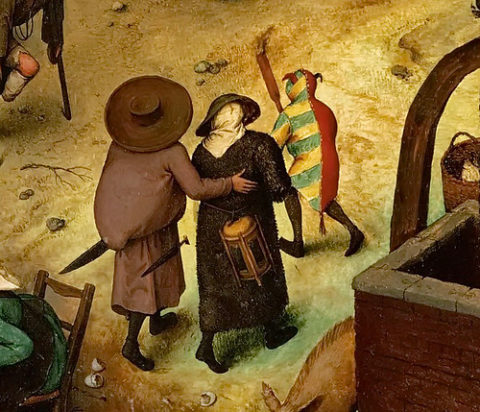Felipe Fernández-Armesto on updating the traditional Christian observance of Lent for our virtue-signalling, social media age:

“Bruegel the Elder, Fight between Carnival and Lent, detail 6” by f_snarfel is licensed under CC BY-NC 2.0
For Lent, I am abstaining from vegetables. It may seem counter-intuitive, because “Carnival” or “Carni Vale” — which the English in their glum way call “Shrove Tuesday” and the French, more cheerfully, call “Mardi Gras” — means “Goodbye to Meat”.
The worldly, historic purpose of Lent is to eke out deficient livestock, doomed, unless slaughtered, to die, emaciated and inedible, on sparse or frozen pastures. Nowadays, however, vegetables seem a sacrifice both reasonable and pious.
If I wanted to be lampooned in Private Eye, I’d say that vegetables are the new meat: marketed as dietetically superior, and flattering to a moral form of snobbery.
Like meat in the old days, they are the preferred food of people who want to look down on the rest of us. Flesh and fish are now humbling meals, consumed in self-abasement. “Veganuary” and “Dry January” — wicked, secularist attempts to subvert the sanctity of Lent — repel me from conventional kinds of penance.
I want to defy the absurd propaganda of meat-haters, who try to shame the ill-informed into vegetarianism with mendacious allegations about the environmental cost of carnivorism. Scientifically, they’re on a par with Pythagoras’s denunciation of “passion proteins” and the meat-phobic campaigns of the nineteenth-century evangelists who hawked joyless, overpriced breakfast cereals.
I also want to expose the folly of people who, in flight from the butcher’s shop, grab textured soy concentrate from supermarket shelves: theirs is the idiocy of the ersatz. If you want something like meat, have meat. If you don’t want meat, have something unlike it. My sacrifice would be greater, of course, if I disliked rare steaks and juicy roasts. But I like vegetables, too. So that’s all right.



